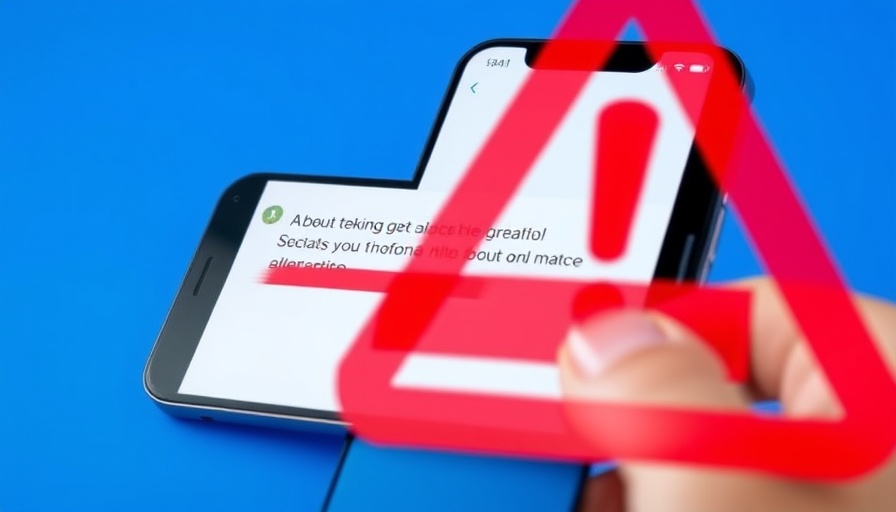
Understanding the Latest DMV Scam Text Alerts
For many homeowners who cherish their hard-earned investments, understanding how scams evolve is crucial. Recently, a new type of scam text spoofing the Department of Motor Vehicles (DMV) has emerged, creating anxiety among recipients. These fraudulent messages threaten recipients with serious repercussions, such as license suspension and vehicle registration cancellation, all designed to compel you into quick, often rash decisions.
Spotting the Red Flags: Is Your Text Fake?
Identifying whether a text is real or fake can be daunting, especially when it comes to matters like license management that are integral to daily routines. A typical scam text may start off with alarming claims about unpaid fines or hidden blemishes on your driving record. The key indicators of a scam text often include:
- Threatening language promising dire consequences
- Requests for sensitive information, often via fraudulent links
- Spelling errors or mismatched sender information
Remember: Legitimate DMV communications will never demand action through text message. They are proactive about ensuring you stay informed about your driving status but will not resort to scare tactics.
The Human Element: Why These Scams Work
Why do scams like this persist? The answer lies in our emotional triggers. Scammers exploit our fear of losing something valuable—like our driver's license. Many folks who might have an outstanding ticket or are generally anxious about administrative processes find themselves susceptible to panic. Humanizing the narrative can help people understand the psychological tactics behind these scams, promote awareness, and bolster their defenses.
What To Do If You Fall for a Scam
It’s easy to feel embarrassed or overwhelmed if you believe you've been tricked by a scam. Nevertheless, acting swiftly can mitigate damage. Should you discover you've engaged with a scammer:
- Immediately contact your bank to alert them of potential fraud
- Monitor your accounts for any unauthorized transactions
- Consider freezing your credit to protect your financial information
- Report the scam using official channels, such as the Federal Trade Commission’s website.
Taking these steps not only secure your information but also contribute to broader attempts to eradicate such scams.
Building a Community of Awareness
Raising awareness about scams within your community can create a safety net for everyone. Work with local organizations to share experiences and strategies that protect one another. Consider hosting workshops or discussion groups where participants can share experiences and stay updated on the latest fraud threats.
Empowering Yourself Against Future Scams
Understanding the landscape of scams empowers you to make informed decisions. Resources abound, from consumer protection agencies to local law enforcement offices that offer guidance on avoiding scams. Keep abreast of possible tactics and encourage others to do the same. With vigilant preparedness, you can safeguard your finances and personal information.
As scams continue to develop, staying informed is your best defense. Share this article with friends and family to help create a community of awareness about these dangerous scams and how to avoid them. Together, we can navigate the scam landscape, keeping our finances secure and our driving records pristine.
 Add Row
Add Row  Add
Add 




Write A Comment